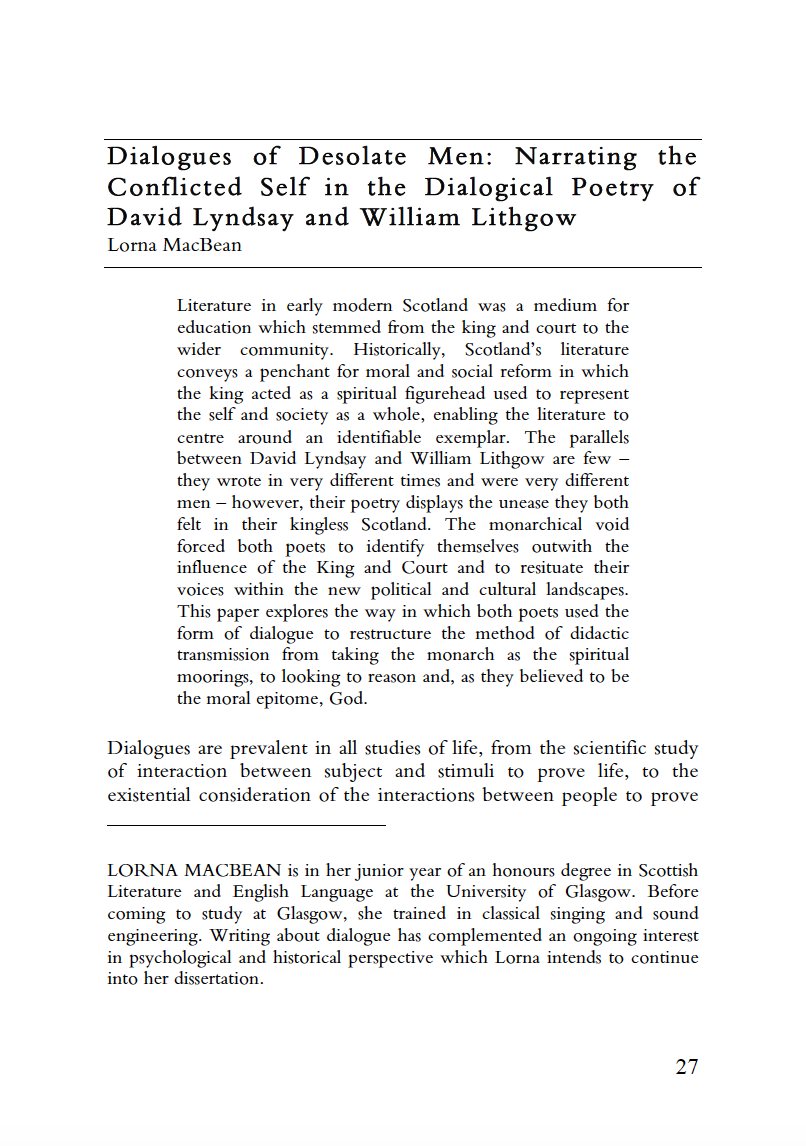Dialogues of Desolate Men
Narrating the Conflicted Self in the Dialogical Poetry of David Lyndsay and William Lithgow
DOI:
https://doi.org/10.36399/GroundingsUG.4.246Keywords:
Early-modern, Scotland, Literature, David Lyndsay, William Lithgow, Monarch, Void, Poetry, Court, Didactic transmission, GodAbstract
Literature in early modern Scotland was a medium for education which stemmed from the king and court to the wider community. Historically, Scotland’s literature conveys a penchant for moral and social reform in which the king acted as a spiritual figurehead used to represent the self and society as a whole, enabling the literature to centre around an identifiable exemplar. The parallels between David Lyndsay and William Lithgow are few – they wrote in very different times and were very different men – however, their poetry displays the unease they both felt in their kingless Scotland. The monarchical void forced both poets to identify themselves outwith the influence of the King and Court and to resituate their voices within the new political and cultural landscapes. This paper explores the way in which both poets used the form of dialogue to restructure the method of didactic transmission from taking the monarch as the spiritual moorings, to looking to reason and, as they believed to be the moral epitome, God.

Downloads
Published
Issue
Section
License
Copyright (c) 2011 Lorna MacBean

This work is licensed under a Creative Commons Attribution 4.0 International License.
The CC BY 4.0 license is a Creative Commons license. This is a non-copyleft free license that is good for art and entertainment works, and educational works. It is compatible with all versions of the GNU GPL; however, like all CC licenses, it should not be used on software. People are free to: Share — copy and redistribute the material in any medium or format; Adapt — remix, transform, and build upon the material for any purpose, even commercially. The licensor cannot revoke these freedoms as long as you follow the license terms. But they must conform to the following terms: Attribution — You must give appropriate credit, provide a link to the license, and indicate if changes were made. You may do so in any reasonable manner, but not in any way that suggests the licensor endorses you or your use. No additional restrictions — You may not apply legal terms or technological measures that legally restrict others from doing anything the license permits.
Please check individual article PDF copies to see if any additional restrictions apply.







